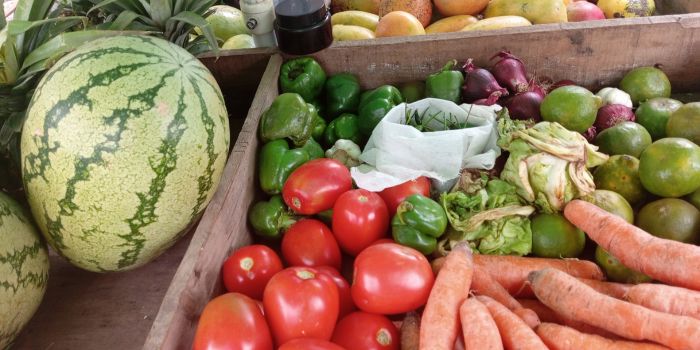Group launches campaign against proposed laws it says will hurt farmers

Kilimo Cha Haki emphasised the need to protect the agricultural sector, which contributes over 80 per cent of Kenya’s GDP.
A civil society group, Kilimo Cha Haki, has launched a campaign urging Members of Parliament to reject several proposed agricultural Bills, which it claims will harm farmers and threaten the country’s food security.
The Bills are currently under discussion in the National Assembly and have raised concerns among many Kenyans.
More To Read
- Healthcare, food, housing, education dominate rights concerns, KNCHR finds
- 2 per cent of Kenyans own over half of the country’s arable land - KHRC report
- CS Kagwe announces policy overhaul for sugar, tea and miraa to protect farmers’ earnings
- Factory farming in Africa: Development banks see it as a good idea, but it’s bad for the climate
- AU calls for rapid tech adoption in farming to shield continent from food crises
- Ruto unveils Sh400 billion mega dam plan to turn North and Coast regions into Kenya's new food basket
Led by Mary Kathomi, the group on Thursday voiced its opposition to nine Bills that have been introduced in the 13th Parliament, describing them as punitive and unconstitutional.
According to Kathomi, these Bills undermine food sovereignty and could severely affect Kenya’s agricultural sector.
“The proposed laws include the Agriculture and Food Authority Bill, the Livestock Bill, 2024, tabled by Kimani Ichung’wah, and the Mung Bean Bill, 2022, co-sponsored by Senators Enoch Wambua and Paul Nzengu,” Kathomi said.
While the Mung Bean Bill was passed in the Senate, it was later dropped during its second reading in the National Assembly.
Other Bills in question include the Agriculture Professional Registration and Licensing Bill, 2024, tabled by Kanyuithia Mutunga, the Nuts and Oil Crops Development Bill, 2023, presented by Senator Hamida Kibwana, and the Horticultural Crop Authority Bill, 2024, tabled by Sabina Chege.
In addition, the Land Amendment Bill, previously introduced by Ichung’wah, was withdrawn, while the Rice Bill, 2024, by James Murango, and the Water Amendment Bill, 2023, also form part of the controversial proposals.
During a media briefing, Kathomi raised concerns about the growing number of agricultural-related Bills, pointing out that 15 state agencies under the Ministry of Agriculture are already tasked with regulating the sector.
“These agencies handle regulation, oversight, policy formulation, marketing, setting standards, and every aspect of food production. What these Bills claim to address is already the responsibility of these agencies, along with county governments,” she said.
The group questioned the effectiveness of these state agencies but maintained that additional Bills would not be the solution.
Instead, Kilimo Cha Haki believes the new laws would introduce unnecessary restrictions and infringe on the rights of Kenyans, particularly small-scale farmers and livestock keepers.
“The aforementioned Bills are punitive in every sense and are unconstitutional because they take our rights as Kenyans,” the group said in a statement.
They argued that most farmers grow crops and raise livestock primarily to feed their families, with only surplus produce being sold in markets.
Kilimo Cha Haki emphasised the need to protect the agricultural sector, which contributes over 80 per cent of Kenya’s GDP.
The group advocates for self-regulation among farmers, proposing that cooperative societies, saccos, and local organisations work closely with agricultural state agencies to streamline operations without the need for additional legislation.
Kathomi also expressed concern over the lifting of the ban on genetically modified organisms (GMOs) in Kenya, warning that the Bills appear to be part of a larger strategy to erode the country’s food sovereignty.
“Since the lifting of the ban on GMOs, there seems to be an intent to take over our food sovereignty, which threatens the country’s food security,” she said.
Kilimo Cha Haki plans to mobilise Kenyans, along with legal experts, to challenge the Blls in court, aiming to protect farmers' rights and prevent the passage of what they consider harmful legislation.
“We intend to pull Kenyans of goodwill and Kenyan lawyers together to go to court to stop these unconstitutional Bills being sponsored in Parliament,” the group said.
This campaign highlights the growing resistance from civil society as lawmakers continue to debate the future of Kenya’s agricultural sector.
Top Stories Today













































